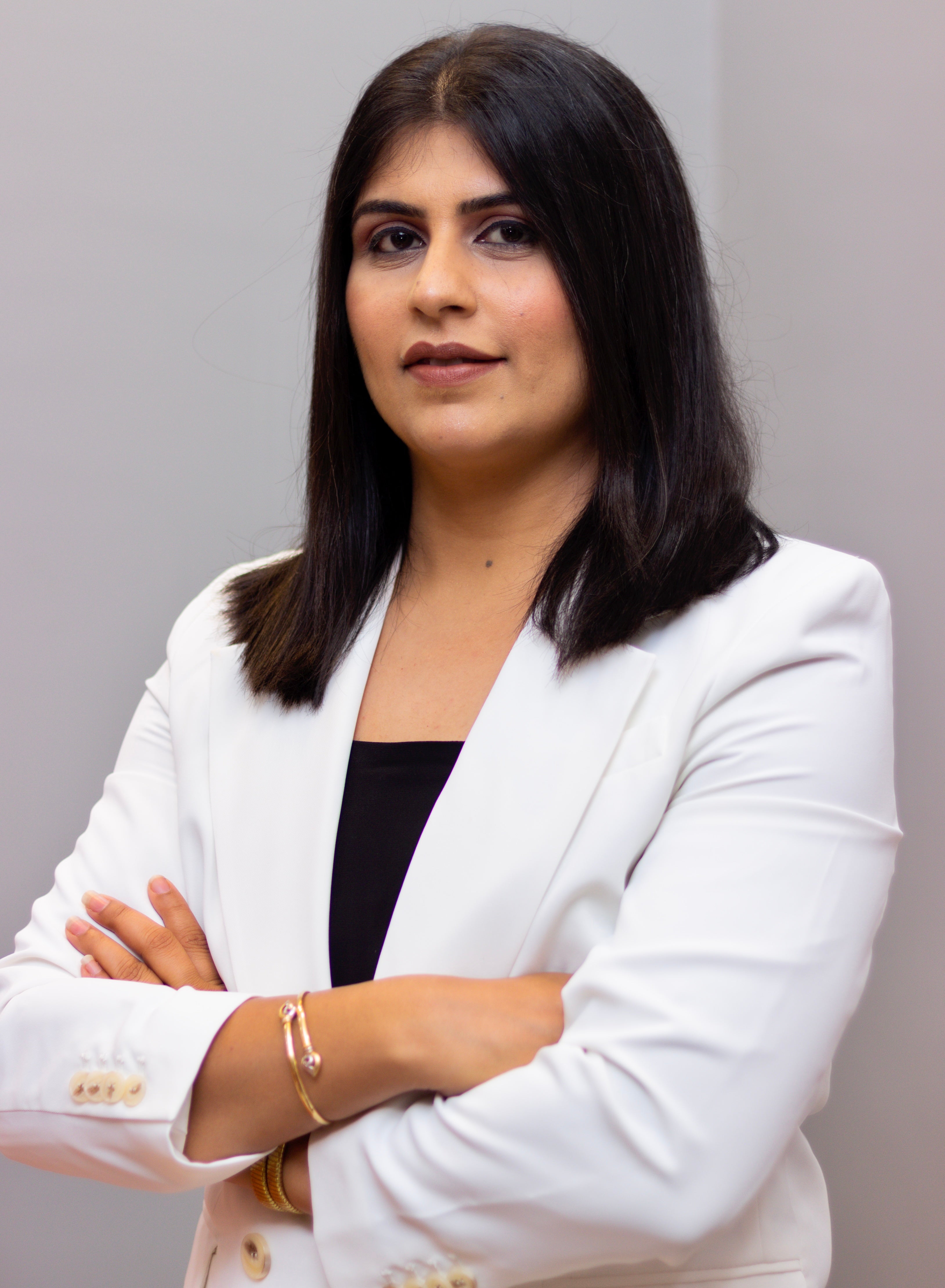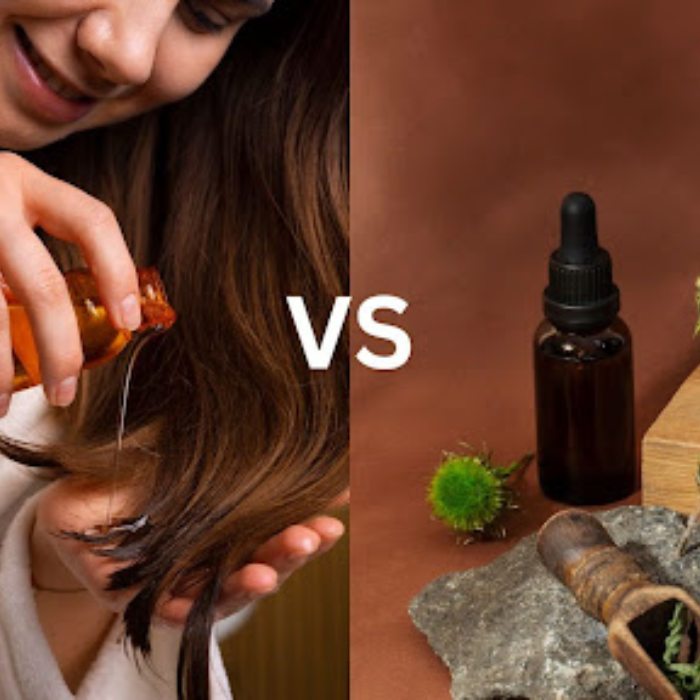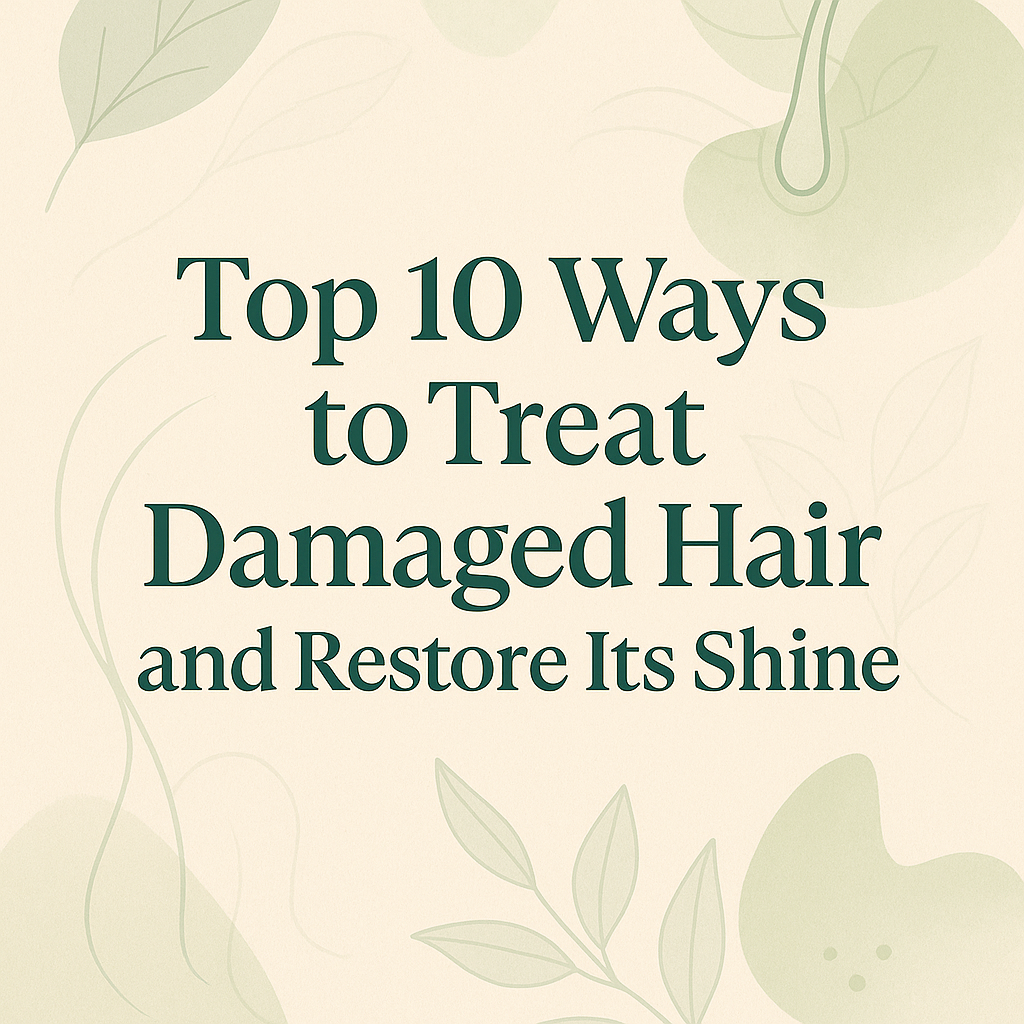If you have been struggling with dandruff for several months and have tried every anti-dandruff remedy without seeing any results, maybe it's time to take a step back and look at the bigger problem! Identifying your dandruff type is the most crucial step in controlling and getting rid of that persistent dandruff.
Yes, there are several types of dandruff and knowing the type is key for choosing the right anti-dandruff treatment.
In this blog, we will look at the dandruff of different types, their origins, and how to reduce dandruff in hair using ayurvedic hair care products.
Different Types and Causes Of Dandruff

Let’s understand the different types of dandruff and how to spot them.
1. Dry Skin Dandruff
Let’s begin with the most common type, dry skin dandruff, which usually flares up in colder seasons.
Identifying Features:
-
Small, white, powdery flakes
-
Itchy or tight-feeling scalp
-
Flakes are more visible on dark clothing
-
Often worse in winter
-
Cold weather and indoor heating dry out the scalp
-
Hot water showers strip natural oils
-
Frequent shampooing without moisturizing
Treatment:
-
Oiling is essential to restore lost moisture. Use a herbal blend containing coconut oil, argan oil, and scalp-soothing herbs.
-
Try Grandmaa Secret’s 13 Herb Oil, enriched with curry leaves that help nourish the scalp and reduce flaking.
-
Wash hair with lukewarm water and use a mild, moisturizing shampoo and conditioner. Nidhi’s Grandmaa Secret Goat Milk Conditioner is a sulfate-free solution for dry and frizzy hair. Infused with goat milk, it deeply nourishes and repairs your hair, leaving it smooth and manageable without parabens or harsh chemicals.
2. Oily Skin Dandruff (Seborrheic Dermatitis)
If your scalp feels greasy and flakes are yellowish or sticky, you might be dealing with oily dandruff. Here’s how to recognize and manage it.
Identifying Features:
-
Large, greasy flakes
-
Yellow or off-white in color
-
Scalp may appear red or oily
-
Often accompanied by itching or inflammation
Causes:
-
Overproduction of sebum (scalp oil) by sebaceous glands
-
Oil traps dirt and dead skin, leading to flaking
-
Poor scalp hygiene or heavy styling products
-
Can escalate to seborrheic dermatitis, a chronic scalp condition
Treatment:
-
Choose a herbal anti-dandruff oil with neem, tea tree, or bhringraj to balance oil levels like Nidhi’s Grandmaa Secret 13 Herbs Hair Oil.
-
Lightly scrub the scalp with natural exfoliants such as curry leaves or seaweed to remove impurities, boost circulation, and unclog congested follicles or use Nidhi;s Scalp Scrub with Curry Leaves & Seaweed that removes dandruff, dead skin and oil buildup
-
Maintain regular washing to keep the scalp clean and fresh. Nidhi’s herbal shampoo strengthens hair, improves texture, and helps prevent dandruff.
3. Fungal Dandruff (Malassezia Overgrowth)
Not all dandruff is caused by dryness or oiliness, sometimes, a naturally occurring scalp fungus goes rogue. Here’s what fungal dandruff looks like.
Identifying Features:
-
Sticky, yellowish flakes
-
Persistent scalp itching
-
Inflamed or red patches
-
Can spread or worsen in humid weather
Causes:
-
Overgrowth of Malassezia, a yeast-like fungus on the scalp
-
Triggered by excess sweat, oil, humidity, or weakened immunity
-
Sharing personal items like combs, hats, or towels
-
High stress levels can worsen the condition
Treatment:
-
Use an anti-fungal herbal oil with tea tree oil, lemon oil, or neem.
-
A sulfate-free shampoo, preferably with antifungal herbs like neem or rosemary, is gentler and more effective over time. Nidhi’s Grandmaa Secret Sulfate-Free Shampoo, enriched with natural ingredients like curry leaves, hibiscus, shikakai, and amla gently cleanses and controls dandruff while maintaining your hair’s natural oils.
-
Avoid sharing combs, towels, or pillowcases. Use a neem comb.
4. Psoriasis or Eczema-Related Dandruff
When dandruff becomes thick, painful, or starts spreading beyond the scalp, it may be tied to a deeper skin issue like psoriasis or eczema.
Identifying Features:
-
Thick, silver-white or yellow flakes
-
Red, inflamed, or bleeding scalp patches
-
Intense itching or pain
-
Flaking may extend to forehead, ears, or neck
Causes:
-
Chronic skin conditions like psoriasis or eczema
-
Autoimmune disorders, genetics, or immune imbalance
-
Triggered by stress, allergens, or harsh hair products
Treatment:
-
Oils with Ayurvedic herbs like amla, brahmi, neem, or rosemary can soothe itchiness and aid in healthy cell turnover.
-
Scalp massage using a scalp scrub and massager also increases blood flow and nourishes the roots deeper.
-
Avoid scratching and reduce exposure to known irritants
Ayurvedic hair care techniques involving a scalp scrub, shampoo, conditioner, and herbal oil all function together to address the issue at all points along the way from buildup at the root to flaking on the surface.
Conclusion
Dandruff is not universal, there are various types of dandruff on the scalp, each requiring a special solution. From dry flakes to oily or fungal deposits, knowing your scalp type is the first step to the proper solution. With the correct Ayurvedic hair care routine, most dandruff types and treatment can be treated naturally.
At Nidhi's Grandmaa Secret, our philosophy is grounded in age-old wisdom. From soothing scalp scrubs that gently remove buildup, to 13 Herbs Hair Oil that calms dryness and flaking, and sulfate-free shampoos that gently cleanse without irritation, our products are designed to make you understand how to reduce dandruff at home, gently and effectively.
FAQs Based On Dandruff
-
What kills dandruff faster?
Herbal oils with neem, tea tree, or rosemary work effectively when applied consistently.
-
How to remove dandruff flakes permanently?
Identify your dandruff type, follow a clean scalp routine, and avoid harsh products. Consistent care is key
-
Can dandruff cause hair loss?
Yes. Persistent dandruff may weaken hair follicles, leading to shedding and thinning.
-
Which oil is best for dandruff?
13 Herbs Hair Oil is ideal, it contains antimicrobial and anti-inflammatory herbs that soothe and heal the scalp.
-
Should I scratch my dandruff out?
No. Scratching can worsen inflammation and cause open wounds or infections.
-
Should I wash my hair every day if I have dandruff?
No. Wash 2–3 times a week with a mild, herbal shampoo. Overwashing can irritate the scalp further.







